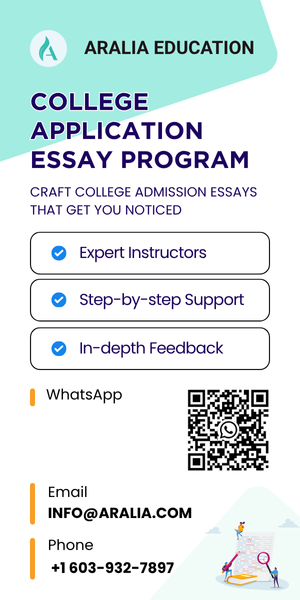Competition Information
Who can participate in this competition?
The New York Times Student Review Contest welcomes participants aged 13 to 19 from around the world. However, students under the age of 18 must obtain permission from a parent or guardian to enter.
What important dates should I remember?
Submission Start Date: The competition will open for submissions on November 1st.
Submission Deadline: All entries must be submitted by December 6th at 11:59 PM Pacific Time.
Winner Announcement: The list of winners is usually announced approximately 2 months after the competition ends.
What Can I Review in the New York Times Student Review Contest?
Participants can choose to review works from various different categories, as shown in the image above. These categories include:
- Books
- Music
- Movies
- Podcasts
- Theater
- TV Shows
- Fashion
- Architecture
- Dance
- Art
- Restaurants
- Comedy
- Hotels
- Technology
- Video Games
- Cars
Important Note: A new rule has been introduced for this year’s competition. The reviewed work must be a piece that made its debut in 2023.
Is there a word limit?
Reviews must not exceed 450 words in length, excluding the title.
Can I submit multiple reviews?
No, submissions are limited to one per student.
Can I submit a review as part of a group?
Collaborative submissions are not permitted. Students must participate as individuals.
What are the plagiarism guidelines for submitted work?
Your article must be your original work. It shouldn’t be plagiarized, written by someone else, or generated by AI. It should not have been published in a school newspaper, other contests, or anywhere else.
This year, students must submit an “artist’s statement” to describe your process. It’s worth noting that this statement will not be evaluated for quality, and therefore won’t affect the selection of finalists or the publication of winning entries.
How will the competition be judged this year?
The New York Times Student Review Contest maintains the same scoring criteria as in previous years, focusing on the following five aspects:
- Opinion: The response should present a clear point of view supported by evidence, and convey the participant’s experiences and reactions in a clear and engaging manner.
- Attention to detail: The review should consistently display relevant and accurate details from the creative work.
- Audience: Reviews should be crafted for a broad audience, with particular consideration for the target audience of the creative work.
- Language: Reviews should engage readers with compelling narrative language, using an appropriate style, and tone, as well as correct grammar, spelling, and punctuation.
- Guidelines: Reviews must adhere to all New York Times contest rules, including the maximum word limit of 450 words, and should be relevant to the category reviewed by New York Times critics.
These criteria are evaluated using four scores: Excellent (4), Proficient (3), Developing (2), and Beginning (1).
Who are the judges for this contest?
The judging panel for the contest includes the Learning Network staff, a team of New York Times journalists, and many other educators from across the country.
Frequently Asked Questions
What is a Review?
A review is similar to an argumentative essay, as the reviewer has to analyze the work closely, understand the context and the meaning behind the text, and then explain why it is meaningful enough for you to review. Then, provide an opinion that establishes a position on the subject matter, and gather evidence to support your stance.
How can I make my review stand out?
The contest organizers encourage reviews that offer fresh, meaningful, and interesting perspectives on the work being reviewed, whether positive or negative. One way to make your review stand out is to create a compelling introduction. Start with a hook that relates to the work you’re reviewing, and briefly introduce the subject matter. For example, you can pose a thought-provoking question, share a surprising fact, or present a relevant quote.
I don’t know how to write a review. How should I start?
If you’re unsure how to begin your review, the contest organizers will be releasing a step-by-step guide to writing reviews, so stay tuned on the official website.
How Can I Gather Feedback on My Review?
Before submitting, be sure to share your work with friends, family, or teachers for feedback. They can provide valuable insights into the clarity and effectiveness of your writing. Constructive criticism can help you refine your review before submission.
In conclusion, the New York Times Student Review Contest is an excellent opportunity for young writers to showcase their critical thinking and writing skills. This contest offers a platform to express your unique perspective– be it on books, movies, or any other creative work. We wish the best of luck to all the participants, and look forward to reading your insightful reviews!
Further Your Writing Skill with Aralia

This class is offered in the summer every year. Students from 13 to 18 years old wanting to learn how to shape their written English into effective and publishable creative pieces will find this particular Writing Competition course very exciting. The class will be shown a range of tools to learn the nuances of controlled, purposeful writing, including: figurative language, effective structuring and specific forms that they will apply to their own pieces.
What's next?
How can I improve my writing? 20 Tips to Improve Your Writing
27 writing competitions for high school students? The top 27 competitions you need to know
Heard about John Locke Essay Competition but not sure where to start? Read this Complete Guide to John Locke Essay Competition
Finished your writing work but not sure where to submit it? Where to Submit Your Writing Works: 5 Main Platforms will answer your questions











